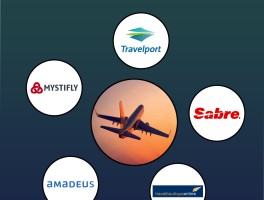
White Label Website
The term "white label" refers to a product or
service that is produced by one company but is rebranded and sold by another
company as if it were their own. The concept is widely used in various
industries, including technology, software, and consumer goods. The white label
apaproach allows businesses to offer a product or service without having to
invest in the development and manufacturing processes, focusing instead on
marketing and branding.
Here's how the white label feature might work for a travel website:
1. -Integration of Services: A travel website, let's say an
online travel agency (OTA), may use a white label solution to integrate various
travel services from another company, such as flights, hotels, car rentals, or
vacation packages.
2. -Branding: - The integrated services are presented on the
OTA's website under their branding, making it appear as if the services are
part of their platform. This helps maintain a consistent user experience for
the customers without the need for the OTA to develop these services
themselves.
3. -Seamless User Experience: - Users can search, book, and
pay for these services directly on the OTA's website, creating a seamless user
experience. The white label feature ensures that the integrated services match
the look and feel of the OTA's brand.
4. -Revenue Sharing: - In many white label agreements, the
travel company providing the services (e.g., a hotel booking platform or a
flight aggregator) earns revenue through a revenue-sharing model. The OTA pays
a fee or commission for each booking made through the white-labelled services.
5. -Customization: - The white label solution is often
customizable to some extent, allowing the OTA to adjust the appearance and
functionality to align with their website's design and user interface.
By utilizing white label features, travel websites can
quickly expand their offerings without the need for extensive development, and
they can focus on marketing, customer service, and other aspects of their
business. It's a win-win scenario where both companies can benefit from the
partnership.






















